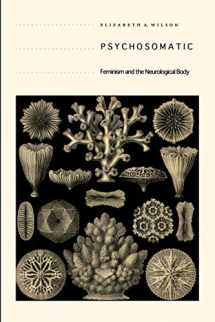
Psychosomatic: Feminism and the Neurological Body
Book details
Summary
Description
How can scientific theories contribute to contemporary accounts of embodiment in the humanities and social sciences? In particular, how does neuroscientific research facilitate new approaches to theories of mind and body? Feminists have frequently criticized the neurosciences for biological reductionism, yet, Elizabeth A. Wilson argues, neurological theories—especially certain accounts of depression, sexuality, and emotion—are useful to feminist theories of the body. Rather than pointing toward the conventionalizing tendencies of the neurosciences, Wilson emphasizes their capacity for reinvention and transformation. Focusing on the details of neuronal connections, subcortical pathways, and reflex actions, she suggests that the central and peripheral nervous systems are powerfully allied with sexuality, the affects, emotional states, cognitive appetites, and other organs and bodies in ways not fully appreciated in the feminist literature. Whether reflecting on Simon LeVay’s hypothesis about the brains of gay men, Peter Kramer’s model of depression, or Charles Darwin’s account of trembling and blushing, Wilson is able to show how the neurosciences can be used to reinvigorate feminist theories of the body.


We would LOVE it if you could help us and other readers by reviewing the book
Book review




